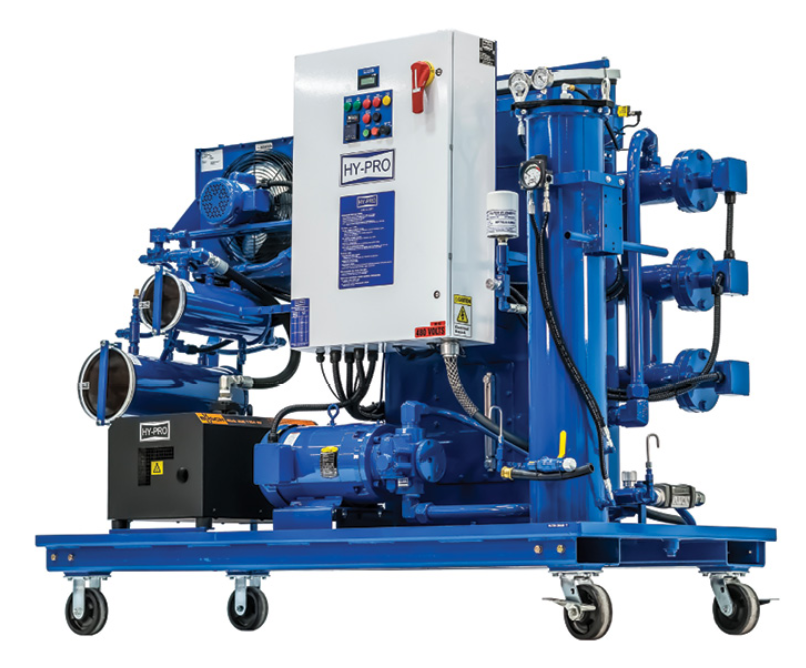Understanding Vacuum Dehydration:
At its core, vacuum dehydration is a sophisticated process designed to remove moisture and contaminants from industrial fluids through the application of vacuum pressure. Unlike traditional methods such as filtration or centrifugation, which may fall short in achieving desired ISO cleanliness levels, vacuum dehydration ensures thorough extraction of water and impurities, thereby preserving fluid integrity and enhancing equipment reliability.
How it works:
The process of vacuum dehydration operates on the principle of lowering the boiling point of water by reducing the surrounding pressure. By introducing the fluid to vacuum conditions, moisture within the fluid vaporizes at lower temperatures, enabling its extraction without causing thermal degradation to the base fluid. This controlled evaporation process effectively eliminates dissolved, emulsified, and free water, along with other volatile contaminants.
Benefits of Vacuum Dehydration:
- Enhanced Equipment Performance: By eliminating moisture and contaminants, vacuum dehydration significantly reduces the risk of corrosion, cavitation, and wear within hydraulic systems, gearboxes, and turbines. This translates to improved operational efficiency, extended component life, and reduced maintenance costs.
- Minimized Downtime: With its rapid and efficient purification capabilities, vacuum dehydration minimizes scheduled maintenance intervals and mitigates the risk of unexpected breakdowns, thereby maximizing equipment uptime and productivity.
- Environmental Sustainability: By extending the service life of industrial fluids and reducing the frequency of fluid disposal, vacuum dehydration aligns with sustainability goals by minimizing waste generation and environmental impact.
- Cost Savings: With a focus on environmental sustainability and reducing overall product waste. The filtering of existing contaminated lubricant can eliminate the need of costly fluid replacement, translating to a 66% cost savings when compared to replacing the entire reservoir's lubricating fluid.
Applications of vacuum dehydration & versatility across multiple industrial applications.
- Hydraulic systems in manufacturing, construction, and mining equipment.
- Gearboxes and turbines in power generation and transportation.
- Transformer oils in electrical utilities and substations.
- Compressor oils in pneumatic systems and refrigeration units.






0 comments